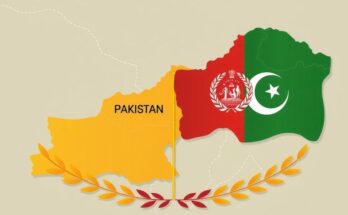U.S. and Russian officials met in Riyadh to discuss diplomatic relations and potential resolutions to the conflict in Ukraine. President Trump suggested Ukraine bore some responsibility for the war’s outset. Although Ukraine was absent from talks, U.S. officials stressed the importance of including it in future negotiations, addressing sanctions, and exploring cooperative projects.
In a significant shift in American foreign policy, negotiations between U.S. and Russian officials have commenced, targeting an end to the war in Ukraine. The talks, featuring U.S. Secretary of State Marco Rubio and Russian Foreign Minister Sergey Lavrov in Riyadh, Saudi Arabia, marked the reopening of diplomatic missions in both nations, although Ukraine was notably absent from discussions.
President Donald Trump, following the meeting, expressed skepticism towards Ukraine’s complaints about exclusion, attributing the initiation of conflict to Ukrainian leaders’ failures to negotiate with Russia before hostilities began in 2022. He stressed, “You should have never started it. You could have made a deal.”
The discussions, spanning four hours, represented the most extensive engagement between U.S. and Russian officials since the onset of the Ukraine conflict nearly three years prior. The two countries aim to restore deteriorated diplomatic relations, which reached new lows after Russia’s 2022 military escalation in Ukraine.
Accompanying the U.S. delegation were National Security Advisor Mike Waltz and Middle East envoy Steve Witkoff. Lavrov announced plans to appoint new ambassadors, emphasizing the need for normalizing operations at embassies to facilitate future peace negotiations and potentially revive economic cooperation.
Seeking to address the conflict, both parties agreed to establish high-level working groups tasked with exploring resolutions, including territorial disputes and security guarantees. However, Lavrov reiterated Russia’s opposition to NATO troop deployments in any peacekeeping efforts related to Ukraine.
Despite Ukraine and its European allies not participating in the talks, U.S. officials affirmed their commitment to include these stakeholders in future negotiations. Rubio maintained that engagement with both sides is crucial for meaningful discussions, asserting that no party would be sidelined in the process.
Moreover, potential easing of sanctions against Russia remains a topic of discussion, with Rubio acknowledging that concessions may be necessary to conclude the conflict. Joint energy projects also emerged as a prospect for U.S.-Russian cooperation following a potential resolution.
Overall, the talks reflect a pivotal moment in diplomatic relations between the two countries, underscoring a willingness to explore pathways to peace, despite the complex geopolitical landscape surrounding the Ukraine crisis.
The recent talks between U.S. and Russian officials signal a significant attempt to mend diplomatic relations and seek peace in Ukraine after nearly three years of conflict. While President Trump attributed blame to Ukraine for the escalation, both parties acknowledged the necessity of inclusion and engagement with Ukraine and its allies in future negotiations. The dialogue indicates a readiness for concessions and potential collaboration, particularly regarding energy ventures, yet challenges remain, particularly concerning security and territorial disputes.
Original Source: apnews.com




